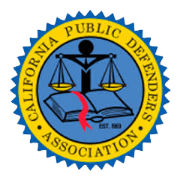
Ever felt stuck because of a past mistake? You’re not alone. A criminal record can slam doors shut, blocking the path to jobs and housing that should be within reach. That’s where expungement steps in—like a legal eraser, it can wipe your slate clean.
Dive into our guide and discover if you’re eligible for this life-changing process. We’ll walk you through filing an expungement request and what to expect at a court hearing with clear-cut steps. Get ready; we’ve got all the help you need right here.
Say goodbye to roadblocks from your past offenses as we explore how clearing your record boosts job prospects, expands housing options, and gives back peace of mind. With the right info and resources at hand, starting fresh is more than just wishful thinking—it’s possible.
Table Of Contents:
- Navigating the Expungement Process in California
- The Benefits of Clearing Your Criminal Record
- Legal Guidance and Resources for Expungements
- FAQs in Relation to Expungement
- Conclusion
Navigating the Expungement Process in California
If you’re ready to turn over a new leaf and erase your criminal record, diving into the expungement process can be your first step towards redemption. It’s like hitting the refresh button on your browser; only this time, it’s for your life story. Now let’s get straight to business: understanding how you can make that happen in sunny California.
Determining Your Eligibility for Expungement
Before we start planning our victory dance, let’s talk eligibility. Not all offenses are eligible for expungement – think of it as an exclusive club where not every past misdemeanor or felony gets a VIP pass. The key is knowing which ones do. In general, if you’ve completed probation successfully and aren’t currently charged with a crime, serving a sentence, or on probation for another offense – congrats. You might just be in luck.
But there’s more to it than checking off boxes; some convictions refuse to vanish—like those stubborn wine stains—such as serious sexual offenses against minors or certain driving under the influence (DUI) charges. State-specific laws will give you the lowdown on what qualifies.
The Steps to Filing an Expungement Request
Rome wasn’t built in a day—and neither is filing an expungement request—a journey through paperwork awaits. Start by gathering court records from where your case went down—it’ll remind you of flipping through old yearbooks but less fun. Learning about other people’s journeys can offer insights and prep steps before facing this administrative beast head-on.
You’ll need forms—which feel like pop quizzes with their endless blanks waiting eagerly for answers—and yes, there are filing fees involved because nothing says ‘legal system’ quite like handing over cash at every corner.
What Happens During a Court Hearing?
Showtime. Facing off with a judicial officer during your court hearing could either spike up adrenaline levels or have butterflies performing aerial stunts in your stomach—but here’s what goes down: they call out names faster than roll-call back at school while each person presents their best case forward—like sales pitches without fancy slides—for why they deserve that record wiped clean.
A tip? Dress sharp—as if going on that first date—and speak clearly when explaining why turning that page matters so much. And remember: even though these hearings may seem casual compared to Hollywood courtroom dramas—the impact could last longer than any movie plot twist ever would.
Ready to scrub your record clean in California? First, check if you’re eligible—some crimes don’t make the cut. Then, gather court docs and fill out forms—it’s like a test but with more at stake. And when it’s time for court, dress to impress and pitch your case. It could change your story for good.
The Benefits of Clearing Your Criminal Record
Imagine unlocking doors to a world where your past mistakes don’t define you. That’s what clearing your criminal record can do. It’s like wiping the slate clean, and it opens up a realm of possibilities for employment and housing that once seemed out of reach.
Expungement is the legal process that removes information about a case from both court and law enforcement records. This isn’t just hiding your history; it’s as if the offense never happened in the eyes of many employers or landlords who run background checks.
Beyond making a record invisible through shielding, expungement lets you answer “No” when asked questions on job applications about past convictions—because legally, those convictions no longer exist. This single change can dramatically improve employment prospects since an arrest record alone can slam shut the door on career opportunities.
Determining Your Eligibility for Expungement
To get started with reaping these benefits, check if you’re eligible for expungement first. Some life events like juvenile delinquency or certain misdemeanors might be easier to leave behind than capital offenses—a quick look at state-specific laws regarding expungements will give more insight into what applies to you.
If your case meets specific criteria such as dismissal or deferred disposition, congratulations. You’ve got one foot through that door already—but remember each state has its quirks when dealing with cases filed against adults versus juveniles or varying by type of crime committed.
The Steps to Filing an Expungement Request
Filing fees shouldn’t deter anyone seeking this fresh start because they’re typically minor compared to lifelong gains from clearing public records tied to adult criminal charges. A little paperwork could spell big changes: less stigma during government relations (like voting), smoother community service engagements without bearing prior criminal weight—all perks leading towards improved impact on housing and education options too.
A cleared name means more trustworthiness in society’s eyes—and let me tell ya’, peace of mind follows suit fast. The freedom felt after successfully sealing away old ghosts cannot be overstated; imagine carrying lighter burdens every day forward?
Wipe your slate clean with expungement and swing open the doors to better jobs and housing. It’s not just hiding—it’s like it never happened.
To start, check if you can clear your record—some offenses are easier to leave behind than others. State laws vary, so dig in.
A bit of paperwork could lead to a lifetime without stigma. Small fees for huge life gains? Worth it. Clearing your name boosts trust and peace of mind.
Legal Guidance and Resources for Expungements
If you’re grappling with a past mistake that’s left a mark on your criminal record, finding the right help to clear it can feel like looking for a needle in a haystack. Seeking legal assistance for expungement is more than advisable; it’s often crucial. An experienced expungement attorney knows the ins and outs of the law, making sure every ‘i’ is dotted and ‘t’ crossed on your journey to a clean slate.
Finding an Experienced Expungement Attorney
The road to expunge records starts by hiring someone who speaks fluent legalese but also gets where you’re coming from. Think about this: Would you let just anyone fix a leaky pipe at home? No way. You’d call in an expert plumber—someone who’s seen it all before. It’s similar when picking an attorney who has danced around courtrooms enough times to know exactly how to sway those judicial officers during your court hearing.
You don’t need gold bars stacked up at home either; there are free or low-cost legal services ready to come through when money’s tight. Just check out Justia’s directory if you want some seasoned pros without breaking the bank.
Navigating Court Procedures & Filing Fees
Lawsuits aren’t won solely based on passion—you’ve got paperwork, too. The petition filing fee might be small compared with what’s at stake: unlocking doors shut tight by that pesky criminal history of yours. Once everything goes through smoothly (fingers crossed), remember that government agencies won’t magically get word of your newly cleaned-up act unless they receive copies of that shiny new expungement order straight from court administration themselves.
To make things even clearer, imagine tossing out old clothes—it feels great until someone spots those embarrassing photos still online because no one cleared them off social media. Same deal here: sealing records needs follow-through so nobody trips over old info down the line.Now isn’t this better than getting lost in legalese?
Don’t let past mistakes weigh you down. An expert expungement attorney can guide you through the legal maze, ensuring your record is cleared properly and affordably.
Hiring a seasoned lawyer is like calling in a pro plumber for that leaky pipe—necessary for the best outcome.
Paperwork and fees are part of the deal, but they’re small hurdles on the path to freedom from your criminal history. And remember: post-expungement, send those court orders out; don’t leave old records lurking online.
FAQs in Relation to Expungement
What crimes can be expunged in Minnesota?
In Minnesota, many misdemeanors and some felonies get wiped if you’ve kept a clean slate post-conviction.
How long does expungement take in MD?
Expungements in Maryland typically span three to four months from filing to final court decision.
How long does an expungement take in NJ?
New Jersey’s expungement process usually clocks in at about six months start to finish.
How much does expungement cost in NJ?
NJ charges up the alley of $75-$300 for filing fees when chasing down an expungement.
Conclusion
Expungement can be a game-changer. It’s your legal do-over, the key to unlocking doors once closed by past mistakes. You’ve learned eligibility is crucial and varies from state to state. Remember, not all offenses are expungeable.
Start with understanding the process; know which forms you’ll need and where to file them. Expect a court hearing, but don’t let that intimidate you—it’s just another step towards freedom.
Tackle each task confidently—clearing your criminal record isn’t just hopeful thinking; it’s within reach. The benefits are real: better job opportunities await, housing options broaden, peace of mind returns.
Pursue those dreams obstructed by an old record—you’re equipped now for success in expungement and beyond.





